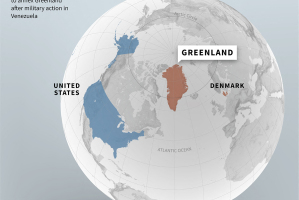The path to ending poverty starts with the environment
From the very beginning, when God created the earth and everything in it, He called His creation good and put humans in charge of it. We can fulfill our call to steward creation when we keep our planet beautiful and sustainable for future generations. In doing so, we also care for those who suffer from poverty. These two callings – to care for the earth and those who live on it – are inextricably linked and are key to solving bigger issues related to global humanitarian crises.
There are more than 800 million people around the world living in poverty and 85% of them live in areas affected by an environmental crisis. Oftentimes, the poorest areas lack the resources needed to prepare for disasters or to combat environmental changes. To help alleviate poverty, we must work together to make a change on the environmental problems that disproportionately impact the most vulnerable.
Floods, famine and weather-related catastrophes go hand-in-hand with issues of climate change, soil erosion and deforestation. These most severely affect individuals in developing countries.
Historically, climate change has been a debated topic within the evangelical church, but it is vital to understand the links between climate change, food insecurity, and global poverty.
Studies show that 85% of the world's most vulnerable people rely on their small farms and personal gardens for survival, but environmental shifts have created monumental impacts. For instance, unprecedented extreme flooding in Thailand and extreme drought in Ethiopia have caused food insecurity as climate change is disrupting certain signs, cues and processes for the cultivation, planting and harvesting seasons. These disruptions present challenges with which farmers previously have never dealt.
While this problem might seem too big to tackle, there are real tangible solutions to counter these environmental changes. One example is reforestation. Trees are essential in the prevention of soil erosion and heal barren hillsides where the land can once again be productive for farmers. Trees also can restore soil by bringing deeper nutrients to the surface and returning organic materials into the ground. Trees restore the soil, draw down carbon from the atmosphere, reduce temperatures and increase rain and groundwater. Through initiatives such as establishing tree nurseries where seedlings are grown and prepared to be planted on hillsides, steps toward reforestation are accomplished. Additionally, agroforestry, a process of incorporating trees into food growing systems, can further add nutrients to food crops and make farming more productive.
All of these efforts are critical to long-term survival, not only because more productive soil empowers farmers to feed their families, but it also provides stability for financial saving and building economic resilience. Growing out of poverty makes individuals less vulnerable to a myriad of other social challenges including sex trafficking, child soldier recruitment and forced labor. In countries like Ethiopia where deforestation contributes to water being more scarce, women and children spend hours each day collecting water. The time spent retrieving water takes away from their ability to earn an income, manage businesses or go to school, as well as exposing them to many safety risks. When poverty is addressed at its root and environmental obstacles like deforestation are tackled, the lives of women and children are positively affected. It is a chain reaction.
The connection between poverty and the environment reveals the critical need for evangelicals to speak into the climate change conversation. By addressing environmental issues, Christians can show compassion for their neighbors and care about protecting this planet that God thoughtfully created.
Churches in many parts of the world also play a critical role in this conversation, often leading efforts in support of environmental stewardship and sustainable living. As a church leader, consider what role you and your church can play in supporting creation care and encouraging others to do the same.
Download a free church Earth Day resource kit at https://plantwithpurpose.org/renew-the-earth
Philippe Lazaro is a storyteller at Plant With Purpose.
Plant With Purpose is the nation’s leading Christian environmental organization. Founded in 1984, Plant With Purpose operates at the nexus of poverty alleviation, environmental restoration, and spiritual renewal. Through years of holistic, community-led innovation, Plant With Purpose supports local leadership in global communities to equip families to reverse the structural and environmental root causes of rural poverty. This model transforms entire watersheds by integrating reforestation, regenerative agriculture, savings group activities, and environmental restoration. Plant With Purpose has planted more than 40 million trees globally and will double that number by 2030. For more information, visit plantwithpurpose.org.



























